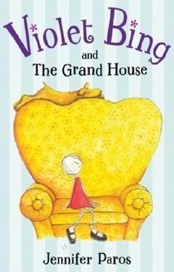Happy Surprises: Learning to Cooperate With the Unknown
by Jennifer Paros
“Mystery is at the heart of creativity. That, and surprise.”
I cannot remember which birthday it was; I think I was turning thirteen. Unbeknownst to me, my Mom was attempting to orchestrate a small surprise on my behalf. I remember my friend Wendy asking me to go somewhere in a manner that seemed out of the norm. My antennae went up; it felt as though I was being covertly steered. Things were happening, behind the scenes, over which I had no control. I became uncomfortable and resistant. The thing is – I liked birthdays and I trusted my friends and family. It was a knee-jerk reaction: I wanted to know what was going on. In the end, due to my lack of cooperation and hyper-awareness, I effectively ruined my own surprise.
On the other hand, as a child, I once hid a dollar in hopes I’d forget where it was and happily discover it later. When I eventually did find the dollar, even though I’d forgotten about it, the experience was lackluster. Having engineered my own surprise, I just knew too much. It’s those incalculable factors – in life and in story telling – that make things so interesting and joyful. I had wanted the delight a surprise can bring but without any of the unknowns and uncertainties. As the years have gone by, I still can’t consider myself an embracer of surprise. But recently, I encountered a surprise that made me think about them differently.
Going through my father’s estate, early in our rummaging, we found a locked security safe box, which inspired a bit of excited speculation. Upon opening it, my husband and I were both disappointed. There was nothing of value in it. A few months later, I was ready to throw the box away but decided to open it once more – though certain I knew what was inside. This time I noticed empty banking envelops, and then spotted one with the edges of cash visible. To my surprise, I counted out almost five hundred dollars. But what really caught my attention was that the process of discovery was so much more entertaining and enjoyable than the money itself.
“In improv there are no mistakes, only beautiful happy accidents. And many of the world’s greatest discoveries have been by accident. I mean, look at the Reese’s Peanut Butter Cup and Botox.”
The setup and the gradual unfolding – the realization of how a surprise comes to be a surprise – is the true intersection of joy. The reason I’ve thought I don’t like surprises could be because I’ve often been unwilling to cooperate deliberately with the unknown, fixated as I’ve been with concerns about the end result. My initial disappointment about the box’s content served as the setup for the happy surprise to come; my misperception of what was in the box actually made the surprise possible, and following my illogical impulse to open the box again (when I already “knew” what was in it) was a big part of the fun. Throughout, I was still pretty cooperative. If I hadn’t been, that box would have been thrown away and I would have missed out, not just on the money, but the surprise realization of a satisfying story.
Improvisation is all about creating and working with surprises, cooperating with what arises in the moment. Tina Fey wrote four rules of improv: 1) Say Yes 2) Say Yes AND 3) Make Statements 4) There Are No Mistakes. Each of the rules points back to cooperation and flow in some way. In comedy, as in other creative work, discoveries are made from an open and fluid state of mind. When we take the mental stance of “no” – when we’re worried about getting it wrong or asking things of others but not bringing enough of ourselves to the table – we’re not truly engaged creatively. Cooperation breeds discovery. In improvisation, the actors collaborate with each other, but ultimately their challenge is to cooperate with the flow of ideas and the process of discovery. And discovery means surprises.
While I’m drawing and writing, I embrace surprises; I’m alert to what lights up and open to seeing where it goes. I know if I try to direct what happens next, the results will most likely disappoint. In my day-to-day life, though, I’m less cooperative. But creativity is the great surprise-party-thrower; it’s got wonderful ideas and connections lined up for us, ready to roll. When our allegiance is to discovery, we allow ourselves to be surprised in our work and our lives; we get out of our own way, and out of the way of a good story just waiting to happen.
Jennifer Paros is a writer, illustrator, and author of Violet Bing and the Grand House (Viking, 2007). She lives in Seattle. Please visit her website.

